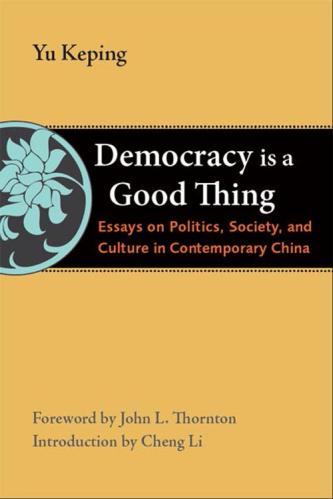

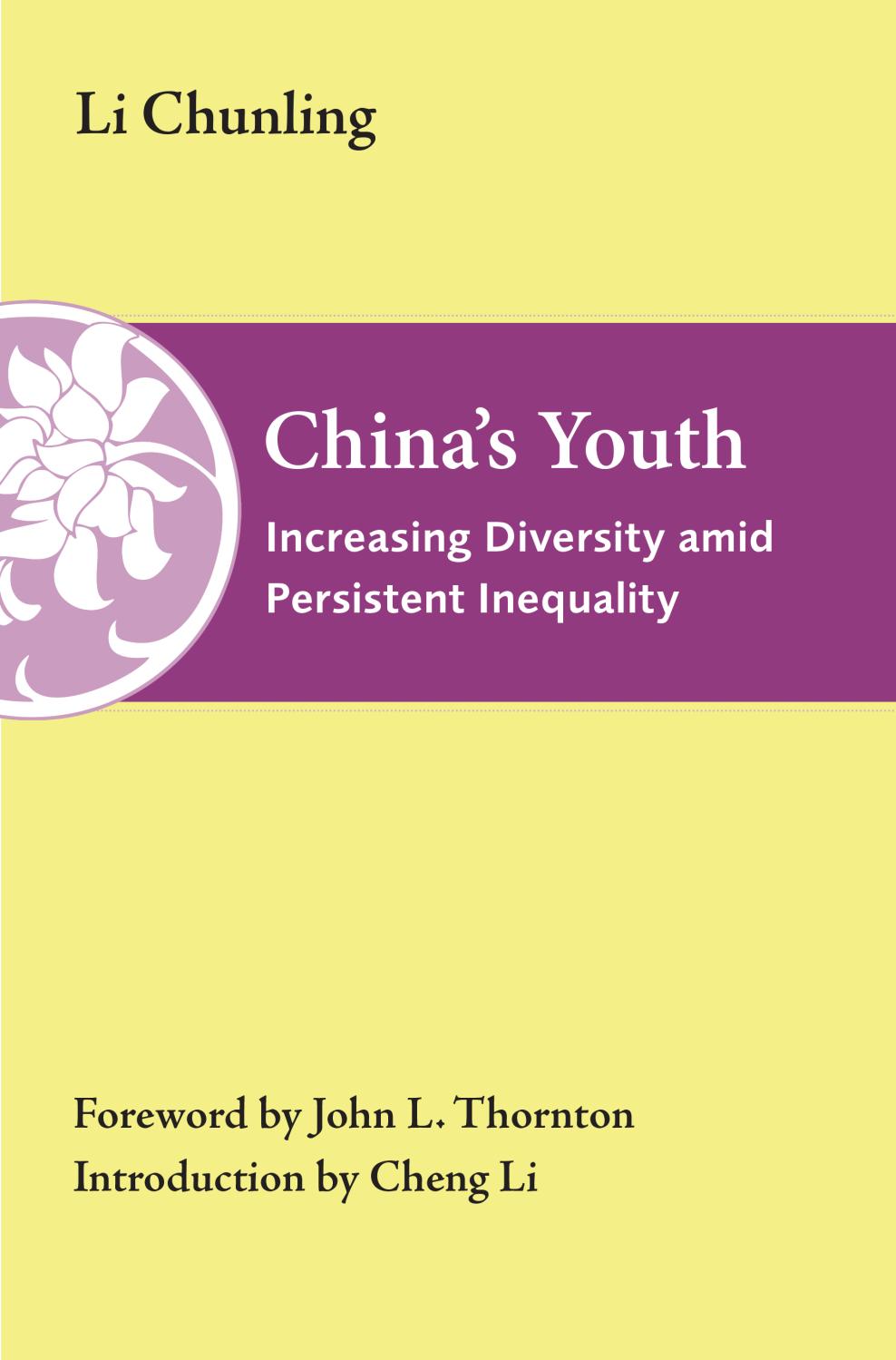
Book
Understanding the young adults who came of age during the rise of China’s economic and global power
This book by a prominent Chinese sociologist explores how China’s youth will influence the country’s future. Focusing on millennials—those born between the early 1980s and the mid-1990s—the book examines the status, lifestyles, attitudes, values, and behaviors of this key segment of the country’s population. Li Chunling’s study presents a native Chinese perspective on the increasingly diverse generation that at some point will assume leadership of the country.
Among the key questions addressed in the book are: How do Chinese millennials differ both from preceding generations in China and from their counterparts around the world? How can current and future relations between Chinese millennials and the Chinese government be assessed? And, what are the factors or fault lines that have shaped the intra-generational differences among China’s young people?
Members of this age cohort are extraordinary, and in some respects unique, in contemporary China. Their ascent has accompanied five historic and far-reaching developments. These include China’s rapid economic rise, the adoption of the one-child-per-family policy, the largest domestic rural-to-urban migration in Chinese history, the opening of extensive educational opportunities abroad, and the arrival of the digital era. Young Chinese citizens have developed a comprehensive understanding of the world much faster than previous generations; millennials see themselves not as extensions of the past, but rather as the innovators of the country’s future.
Through expansive and in-depth empirical research on Chinese millennials and younger age cohorts (people in their late teens and early 20s), Dr. Li’s book illustrates how China’s younger adults reflect the growing diversity and persistent inequality in society. The book also explores how their distinct characteristics and views will shape the country’s trajectory. For the outside world, developing a better understanding of this unique generation is an urgent task, given that China now has more influence on the global economy and regional security than at any other point in modern history.
Related Books

Yu Keping John L. Thornton Cheng Li
January 9, 2009
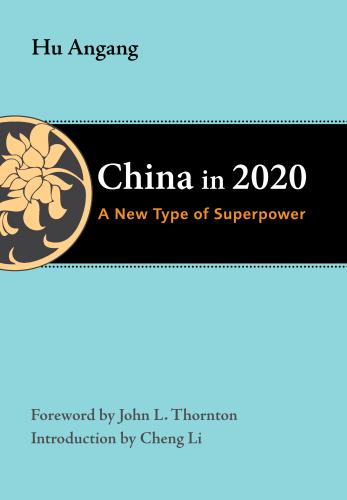
Angang Hu John L. Thornton Cheng Li
April 18, 2011
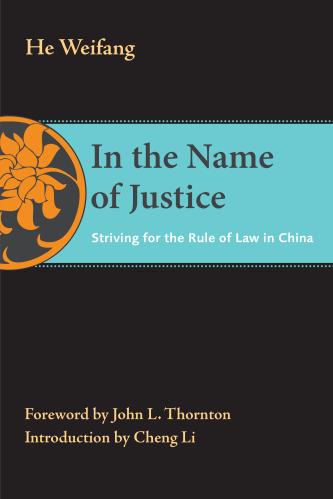
Weifang He
November 5, 2012
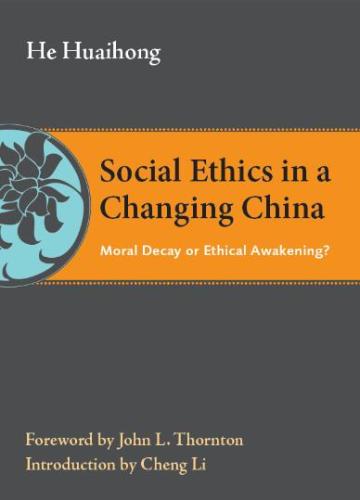
Huaihong He John L. Thornton Cheng Li
October 9, 2015
“Li Chunling’s book provides an invaluable service by challenging conventional wisdom and illuminating the diverse views of Chinese youth that will shape China’s domestic development and foreign relations in the future. It is time for us to seek a fuller understanding of China’s youth, just as they have sought to understand us.”
—From the Foreword by John L. Thornton
“In Li Chunling’s research, various forms of inequality in the reform era have constituted a central concern. Over the past decade, she has consistently argued that the two main groups of Chinese youth—college students and the new generation of migrant workers—are starkly different in many respects, and the growing inequality between them cannot be ignored.”
—From the Introduction by Cheng Li
“This timely book captures the challenges that Chinese youth face today—rising inequality and a fierce labor market. Li shows that China’s millennials are differentiated in gender, geography, and rural-urban status. She asks whether or not this generation has indeed undergone a silent revolution of values in a China that’s richer than ever before.”
—Diana Fu, associate professor of political science, University of Toronto; nonresident fellow, the Brookings Institution
“Western researchers have often neglected the sophisticated and nuanced work being conducted by Chinese social scientists. The work of Li Chunling, one of China’s leading sociologists, should be required reading for anyone seeking an understanding of the evolution and complexity of contemporary youth attitudes and of Chinese society more generally.”
—Stanley Rosen, professor of political science and international relations, University of Southern California
“Li Chunling is perhaps the leading sociologist researching how China’s extraordinary growth has transformed the lives of Chinese youths. Heretofore the results of her research have mostly been visible only to readers of Chinese journals, but these English translations make them available to a broader audience. Anyone interested in the fates of Chinese millennials will want to consult these important studies by Li Chunling.”
—Martin K. Whyte, John Zwaanstra Professor of International Studies and Sociology, emeritus, Department of Sociology, Harvard University
“In China’s Youth, Li Chunling offers a dual perspective of diversity and heterogeneity. China’s accession to the World Trade Organization in 2001 led the country into a more open and progressive century, enabling Chinese millennials to aspire to a different future. The fact that a scholar working at a top national research institution could conduct an empirical study from this unique perspective shows how much China has changed.”
—Zhou Xiaohong, professor of sociology, Nanjing University
Li Chunling, one of the most influential sociologists in China, is director of and a professor in the Department of Youth Studies and Education at the Chinese Academy of Social Sciences. She has earned considerable influence in academic circles, the policy establishment, and public discourse as a result of her exploration of youth issues in China.
John L. Thornton is chair emeritus of the board of trustees of the Brookings Institution, global co-chair of the Asia Society, and professor and director of global leadership in the School of Economics and Management at Tsinghua University.
Cheng Li is director of and a senior fellow in the Brookings Institution’s John L. Thornton China Center. He is also a director of the National Committee on U.S.-China Relations. His most recent book is Middle Class Shanghai: Reshaping U.S.-China Engagement (2021).
China’s “digital natives”: How the post-’90s generation is transforming the country
Analyst: Washington loses influence over China’s future